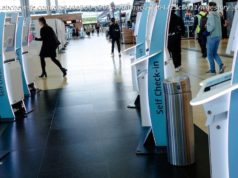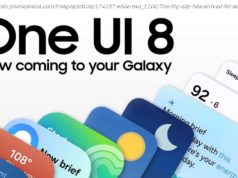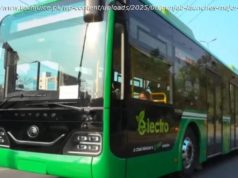We explore the tech you need to switch on if you want to better switch off.
As if the current political climate hasn’t given us enough to worry about, last week Professor Matthew Walker, the Director of the Centre for Human Sleep Science at the University of California, Berkeley, made headlines for claiming that sleep deprivation can negatively affect “every aspect of our biology” and is widespread in modern society.
In an interview with The Guardian Walker states that lack of sleep can contribute to a range of mental and physical illnesses, including Alzheimer’s, cancer, obesity and poor mental health.
With that in mind, it’s no surprise tech brands are bolstering their efforts to try and solve our sleep problems for good. But are more devices really the answer to better sleep?
Sleep tracking technology has existed for decades in a research setting. But for consumers it’s becoming more and more advanced.
Devices built to track data about our health and fitness then serve those numbers back to us with scores, graphs and ratings are already popular, from high-end running watches designed by the likes of Garmin through to simple and affordable activity trackers from companies like Fitbit.
The thinking is that armed with more awareness about our habits and activities, we have a better chance of being able to learn more about our bodies and change them. With answers to sleep problems being elusive for many, it makes sense that sleep tracking would become just as widespread as step, run and activity tracking.
Of course sleep tracking technology has existed for decades in a research setting. But for consumers it’s becoming more and more advanced, presenting users with more accurate data about the sleep stages they’re entering, how their body responds when they’re in those stages and the factors that might contribute to sleep duration and quality.
But will more knowledge about our sleep patterns really give us more power to change them? Or will we run the risk of doing the opposite and actually losing sleep over our need to track it?
Sleep technology is a rapidly expanding sector of the wearable technology and smart home spaces, and there are a number of different types to be aware of. Depending on what you’re looking to find out, you’ve everything from activity trackers with sleep monitoring smarts built-in, like the Misfit Ray and Fitbit Alta, through to sensors built especially for sleep, like the S+ Sensor from ResMed and Beddit, to try out.
But there are also devices worth mentioning that aren’t necessarily designed to track your sleep, but help you get to sleep. From wake-up lamps, like the Lumie Body Block and Sleepace Nox Music Lamp, through to the Dodow, which sends you off into a calm slumber by projecting lights onto your ceiling, and Thync, which preps you for sleep with neurostimulation.
There’s been little solid research into the efficacy of many of these consumer-facing products. But so far a lot of anecdotal evidence seems strong – and of course the brands themselves are keen to shout about how life-changing sleep tracking can be.
But it doesn’t take a sleep researcher to identify a conflict here. Aren’t we all being told to turn off the tech in our bedrooms in pursuit of a good night’s sleep rather than buy more of it?
Sleep tech has been used in a medical setting for years, and is powerful in the hands of researchers armed with clear goals, a patient’s medical history and expert knowledge about how to work their equipment accurately. Without that structure and tech at home, will it really be a positive experience or a waste of money that actually increases sleep anxiety?
We spoke to Dr Jamie Zeitzer, Assistant Professor at Stanford University in the Department of Psychiatry and Behavioral Sciences and the Centre for Sleep Sciences and Medicine about the role technology can play in helping us to get a better night’s sleep.
“In theory, yes tech can help,” Zeitzer told us.
“We are often unaware of the actual causes of poor sleep at night. The hope is that sleep monitoring tech will allow us to track the variety of behaviors and environmental factors that could contribute to poor sleep.”
He explained: “For example, is it that whenever you return from the gym less than an hour before initiating sleep you sleep poorly? Or is it when you have caffeine in the afternoon? Or is it when the rubbish truck comes by at 6 in the morning?”
It’s clear that tracking your sleep could be a way to highlight sleep problems you may not already know about, as well as identify patterns and triggers for both quality and broken rest. But beyond figuring out a coffee after 5pm leads to bad sleep, is sleep tech going to have lasting appeal?
“I have found the current sleep trackers to provide uninteresting data, for the most part,” Zeitzer told us.
“Except for the minority of the population who are into the quantified-self, most people would not find detailed information about their nightly sleep (especially independent of context) to be useful.”
He continued: “Telling people they had a ‘good’ or ‘bad’ night of sleep is useless as it is based on objective measures that have little bearing on subjective phenomenology. In other words, the thing that most people care about is subjective sleep – how you feel in the morning. Unfortunately we have shown (after analyzing sleep from nearly 5000 individuals) that objective measures tell us very little about subjective sleep.”
Telling people they had a ‘good’ or ‘bad’ night of sleep is useless as it is based on objective measures that have little bearing on subjective phenomenology.
In the same way your Fitbit tells you if you had a ‘good’ steps day, some sleep tracking technology aims to give you a ‘sleep score’, which can be a number or something as simple as what Zeitzer mentions, telling you if your sleep is ‘good’ or ‘bad.’
This highlights a concern we’ve explored in the realm of stress tech before, which is that being advised to take more steps is helpful – steps are easy to go and do right now. But tech that tells you that you’ve had a bad day and need to de-stress, or in this case, a bad night’s sleep, becomes more challenging and can be effective for some and cause problems for others.
For instance, a recent study suggested that some people felt more tired throughout the day based on what their sleep tracker told them – not how they actually slept.
Dr. Michael Farquhar, a consultant in sleep medicine at St Thomas’ Hospital, London told us: “The evidence to date suggests that those who do use tech to track sleep tend to be the same people who then worry most about not getting enough of it. For many, all the technology does is heighten anxiety around sleep – which makes good quality sleep even harder to achieve.






